Scientific Program

Medical Cannabis Clinicians Society and UK Cannabis Industry Council, UK

Sagol Brain Institute and Institute of Pain Medicine Tel Aviv Medical Center and Sackler Faculty of Medicine, Israel. President of the Israel Pain Association

McLean Hospital Cognitive and Clinical Neuroimaging Core and Marijuana Investigations for Neuroscientific Discovery (MIND), and Dept of Psychiatry at Harvard Medical School, USA
Cannabis has been part of countless civilizations, with references in ancient cultures spanning thousands of years. Within the United States, cannabis has had a rather storied past, from its inclusion within the US Pharmacopeia in 1850, allowing physicians to prescribe it for any condition, to its placement in the most restrictive category of the Controlled Substances Act in 1970, where it remains today. Generally, data regarding the impact of cannabis have largely been derived from observational studies of recreational consumers or acute administration studies, which in the US, used products exclusively sourced from the National Institute on Drug Abuse (NIDA). Despite a re-legalization for medical purposes in California in 1996, studies of medical cannabis patients, while expanding, remain extremely limited, with no long-term data available. Accordingly, in 2014, Dr. Gruber founded the Marijuana Investigations for Neuroscientific Discovery (MIND) program, specifically designed to examine the long-term impact of medical cannabis use on a range of health-related outcomes using various methodological approaches, including clinical trials. Dr. Gruber will highlight some of the difficulties she and her team faced while working towards conducting the first FDA-approved clinical trial of a whole-plant, full-spectrum, cannabis-derived product for anxiety and related symptoms. Despite initial obstacles, this study is well underway; Dr. Gruber will present recently published data from the open-label phase of the study and discuss the ongoing double-blind, three arm trial. In addition, she will discuss other ongoing and soon-to-launch clinical studies from the MIND program and explain why clinical trials may continue to be a “gold standard” for research, but must also include data from real world patients using real world products via comprehensive, multidimensional observational studies.

St Columba’s Hospice Chair of Palliative Medicine, Institute of Genetics and Cancer, University of Edinburgh, Western General Hospital, Scotland, UK

Pain Relief Unit, Hadassah Hebrew University Medical Center, Israel

President Brains Bioceutical, Canada
The field of cannabinoid research is advancing, with new discoveries being made about the potential therapeutic benefits of these compounds. However, for these discoveries to be translated into effective treatments for patients, it is essential that proper due diligence is done, and well-designed clinical trials programs are initiated. In this presentation, we will discuss the course, challenges, considerations, and rewards for advancing the cannabinoid scientific research landscape
The course – why should we care enough to pioneer the scientific research landscape
The challenges – why is it only the courageous that pursue this new medical frontier
The considerations to minimize risk and inform sound investment decision making
The rewards – Is it worth it?
Despite the promising potential of cannabinoids, there is still a need for more rigorous scientific research to fully understand their therapeutic benefits.
Discover why the time is right and the time is now.

Innovation Manager Pharma at DSM, Switzerland
Cannabidiol (CBD) is fast emerging as an exciting ingredient across the pharmaceutical market, powered by increasing scientific research investigating its potential benefits in a number of disease states, including central nervous system (CNS) disorders, pain management, cancer and more. While there is a remarkable opportunity for the development of CBD-based therapies in the field, formulating a highly lipophilic API (logP = 6.3) and poorly soluble crystalline API can be a challenging task, especially when the focus is on increasing the oral bioavailability of the molecule.
Oral bioavailability – simply defined – is a measure of the quantity of drug absorbed into the systemic circulation following oral administration of the drug. The oral bioavailability of CBD has been shown to be very low in humans, as a result of incomplete absorption in the gut and significant pre-systemic elimination in the liver. It is therefore paramount to understand and control these inherent obstacles in order to address the challenge of bioavailability when formulating CBD.
With this in mind, the objective of this work was to systematically explore a number of drug delivery technologies, previously claimed to possess the ability to enhance the bioavailability of poorly soluble drugs and assess their effectiveness in increasing the pharmacokinetic profile of CBD. By using a combination of powder characterization techniques (e.g. DSC, XRD, DLS), in-vitro assays and animal models we strived to correlate the physical properties of the differently formulated API with its in-vitro bioaccessibility profile and eventually its in-vivo pharmacokinetic performance.
We expect that the currently ongoing in-vivo evaluation will further help us elucidate the correlation between the deliberate choice of excipients and formulation technology and the pharmacokinetic performance of the API, enabling us to choose the right candidates for clinical validation and eventual product development.
The end results of our research will not only help improve the oral bioavailability of CBD, but also inform the pharmaceutical industry on the appropriate formulation for their intended applications, thereby enabling the industry to explore and expand upon the established therapeutic benefits of CBD more effectively.

President Brains Bioceutical, Canada

Innovation Manager Pharma at DSM, Switzerland

CTO Script Assist, UK

Phytoreceptors ApS, Denmark

Institute for Pain Medicine, Tel Aviv Medical Center, Israel
| 16:20-16:30 | Phytocannabinoids and Periodontal Inflammation, Jan Vacek, Czech Republic |
| 16:30-16:40 | Questioning Assumptions about the Abuse Potential of Medical Cannabis and Cannabinoids: A Critical Review and Rationale and Focus for Clinical Trials, Peter Pressman, USA |
| 16:40-16:50 | Stoned and rejected: a naturalistic study of the impact of social exclusion and acute cannabis use on sexual arousal, sexual inhibitions and risky sexual behavior, Sharon Rabinovitz, Israel |
| 16:50-17:00 | The Impact of Cannabidiol Treatment on Brain Function and Metabolism of Patients with a Psychotic Disorder, Matthijs Bossong, Netherlands |
| 17:00-17:10 | “Flower Power”: Controlled Inhalation of Chemotype I Cannabis Flos Improves Health-Related Quality of Life and Alleviates Symptoms of Chronic Pain and Anxiety in UK Patients, Guillermo Moreno Sanz, Spain |
| 17:10-17:20 | Novel Medical Cannabis Regimens in the Canadian Veteran Population: Reducing Negative Side Effects of Polypharmacy and Optimizing Outcomes, Celeste Thirlwell, Canada |

Centre for Pain Research, University of Galway, Ireland

Faculty of Biology, Technion Israel Institute of Technology, Israel

Chief Research Office, Drug Science, UK

The Headache and Facial Pain Clinic, Department of Neurology, Sourasky Medical Center, Israel

The London Resilience Clinic, UK
We regret that Dr Elizabeth Iveson will not be giving this presentation as she has been forced to cancel due to a family emergency.

National Centre for Naturopathic Medicine at Southern Cross University, Australia
| 13:30 | Study of Antimicrobial Activity of Hemp Extract Seed Oil against Staphylococcus Pseudintermedius and Pseudomonas Aeruginosa Strains Isolated from Pyoderma and External Otitis in Dogs, Valeria Toppi, Italy |
| 13:40 | The chemotypes I and III of Cannabis sativa l., induce distinct types of cell death (apoptosis / necrosis) in human leukemic cell lines, Sandra Paola Santander Gonzalez, Colombia |
| 13:50 | Safety and Feasibility of Administration of an Oral Cannabis Preparation in The Preoperative Period in Breast and Oral Cavity Cancer, Joshi Shalaka, India |
| 14:00 | Randomised, Placebo-Controlled, Double-Blind Studies of Medicinal Cannabis for Symptom Management in Patients with Advanced Cancer, Janet Hardy, Australia |

Consultant Psychiatrist specialising in Neurodevelopmental Psychiatry, UK

Imperial College Healthcare NHS Trust, UK, President of the British Pain Society

CTO Script Assist, UK

Sagol Brain Institute and Institute of Pain Medicine Tel Aviv Medical Center and Sackler Faculty of Medicine, Israel. President of the Israel Pain Association

Imperial College Healthcare NHS Trust, UK, President of the British Pain Society

Consultant Psychiatrist specialising in Neurodevelopmental Psychiatry, UK

The Headache and Facial Pain Clinic, Department of Neurology, Sourasky Medical Center, Israel

The London Resilience Clinic, UK
Haggai Sharon, and Arun Bhaskar; Chronic Pain
Niraj Singh; Psychiatry
Amnon Mosek; Neurology
Dani Gordon


